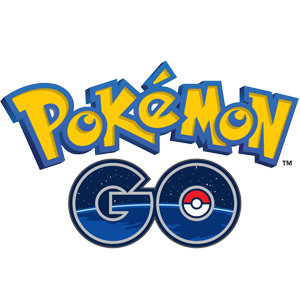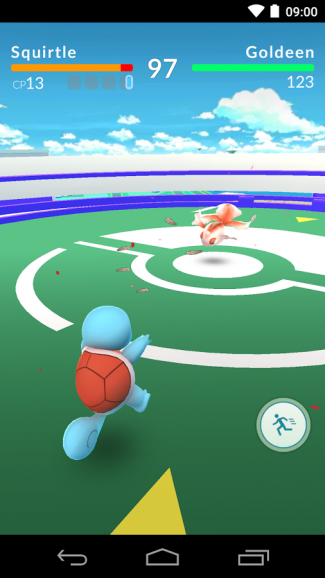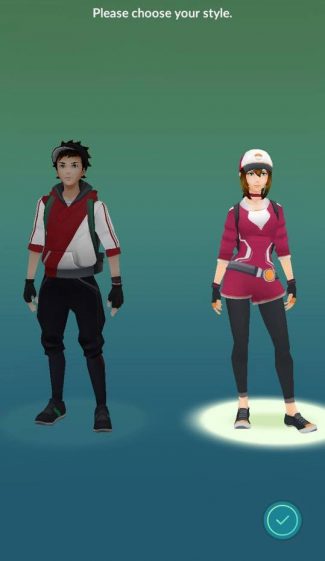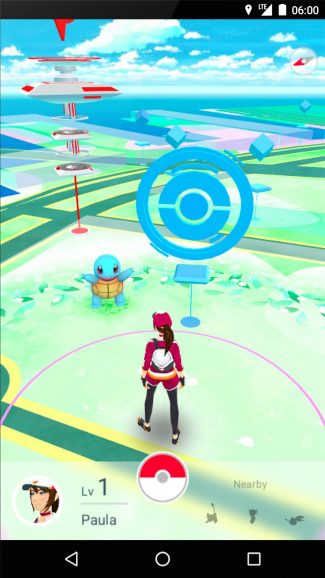Bastion
LQ: 9.15
Recommended Age: 10+
Skills Used: Planning, Working Memory, Mathematics, Reading

Pokémon GO is an augmented reality (or more accurately, a GPS location-based) game for iPhone and Android mobile devices. Part of the popular Japanese media franchise, Pokémon GO puts the player in the role of a trainer who captures, trains, and battles Pokémon — “pocket monsters” — for sport. The augmented reality (AR) nature of Pokémon GO means that the game world is a player’s actual environment. Developed by Niantic, the studio formerly part of Google and responsible for the popular underground AR game Ingress, Pokémon GO uses a device’s GPS location and camera to place Pokémon in real world places, and Pokéstops and Gyms (where players power up, level up, and battle those creatures) over actual places of interest. Though Pokémon GO’s content is appropriate for all ages (the game has an ESRB rating of E, for everyone), the roaming aspect of gameplay does require a certain amount of autonomy and responsibility or adult supervision. Parents should also be advised that players can make in-game purchases; use this feature for conversations about financial responsibility and trust or disable in-game purchases altogether (in the settings menu for iPhone or in the Google Play store on Android phones). We recommend this game for kids as young as 4, and urge parents to play, too.
 Flexibility
FlexibilityAdapting and adjusting to changing conditions and expectations.
Things don't always go as planned in Pokémon GO. Pokémon aren't always easy to find, and sometimes they are next to impossible to capture. Players practice cognitive flexibility when they decide to come back to a capture later, with help or permission, or scrap a capture mission altogether in favor of safety or respect. Flexibility also means trying new things, something Pokémon GO players have plenty of opportunities for. Pokéstops and Gyms are often placed in points of interest and places of business, giving players the chance to discover new places, people, and things.
Getting started and then maintaining attention and effort to tasks.
Focus is all about ignoring distractions and directing one's attention to the task at hand. Pretty much any video game you play calls upon this thinking skill. But being an AR game makes Pokémon GO different from other video games for one big reason: you play it on the go. The singular focus players exercise during seated video game play isn't possible, or necessary, when playing Pokémon Go. Players must split their focus between the game world and their physical surroundings or they could walk away from the Pokémon they're trying to capture, or worse, into harm’s way, which means some good working memory exercise, too.
 Planning
PlanningDeveloping a systematic approach for setting and achieving goals.
Planning is a skill players use for Pokémon GO from the start. Choosing an avatar, which Pokémon will be their first capture, which direction they'll head for their next -- these are basic planning skills at work. Planning gets more complex and easily generalized when it comes to venturing further away from a player's starting point. Where am I headed? Do I need to bring food and water? Is my phone charged enough? What time does mom want me back home? Are any friends coming? When players are engaged with the game in an active area, they need to check their “nearby” list and prioritize the closest Pokémon. Checking the map for Pokéstops and Gyms means plotting an efficient and sensible path, and possibly eliminating outliers, putting planning skills to the test.
Understanding our own actions, thoughts and feelings and empathizing with others.
Self-awareness exercise abounds in Pokémon GO. Of course, when training and fighting Pokémon, understanding strengths and weaknesses and reflecting on success and failure are integral to gameplay. But the social aspects of Pokémon GO are where the self-awareness potential is most remarkable. While the in-game multiplayer isn't that involved, the way players are interacting outside of the game is unprecedented. Players are overcoming anxiety, depression, and agoraphobia, bonding over the game, helping each other find certain “wild” Pokémon and take over and defend gyms, adventuring in groups, and learning new things about neighbors and neighborhoods. A number of autism parents have reported incredible changes in their children's outlooks and interactions. ADHD parents have reported an increase in engagement and cooperation.
 Time Management
Time ManagementBeing efficient and aware of our use of time and effort.
Pokémon GO is a game that motivates players to explore their communities. Most of this exploration is done on foot or by bike, and takes players across a considerable distance. For kids who aren’t accompanied by adults and have curfews and time constraints, the challenge becomes gauging whether time allows for a cross-town trek or just a quick trip down the street. Playing on a time limit forces players to make decisions beforehand and on the go, challenging not just their time management skills, but their planning and efficiency as well.
Recalling and retaining information in our minds while working.
As mentioned above, the focus exercise players get with an AR game like Pokémon GO is unique. Because the game world overlays the real world, and players use their devices like dowsing rods, not only is attention split, working memory is tested. Which Pokéstop am I headed toward? Which Pokémon are nearby? Where was that Gym again? What color was it? Players are checking in with devices and keeping information in mind as they calculate and move toward their goals.
All membership plans come with full access to our entire suite of tools learning guides, and resources. Here are a few of the ones we think you’ll like the most: